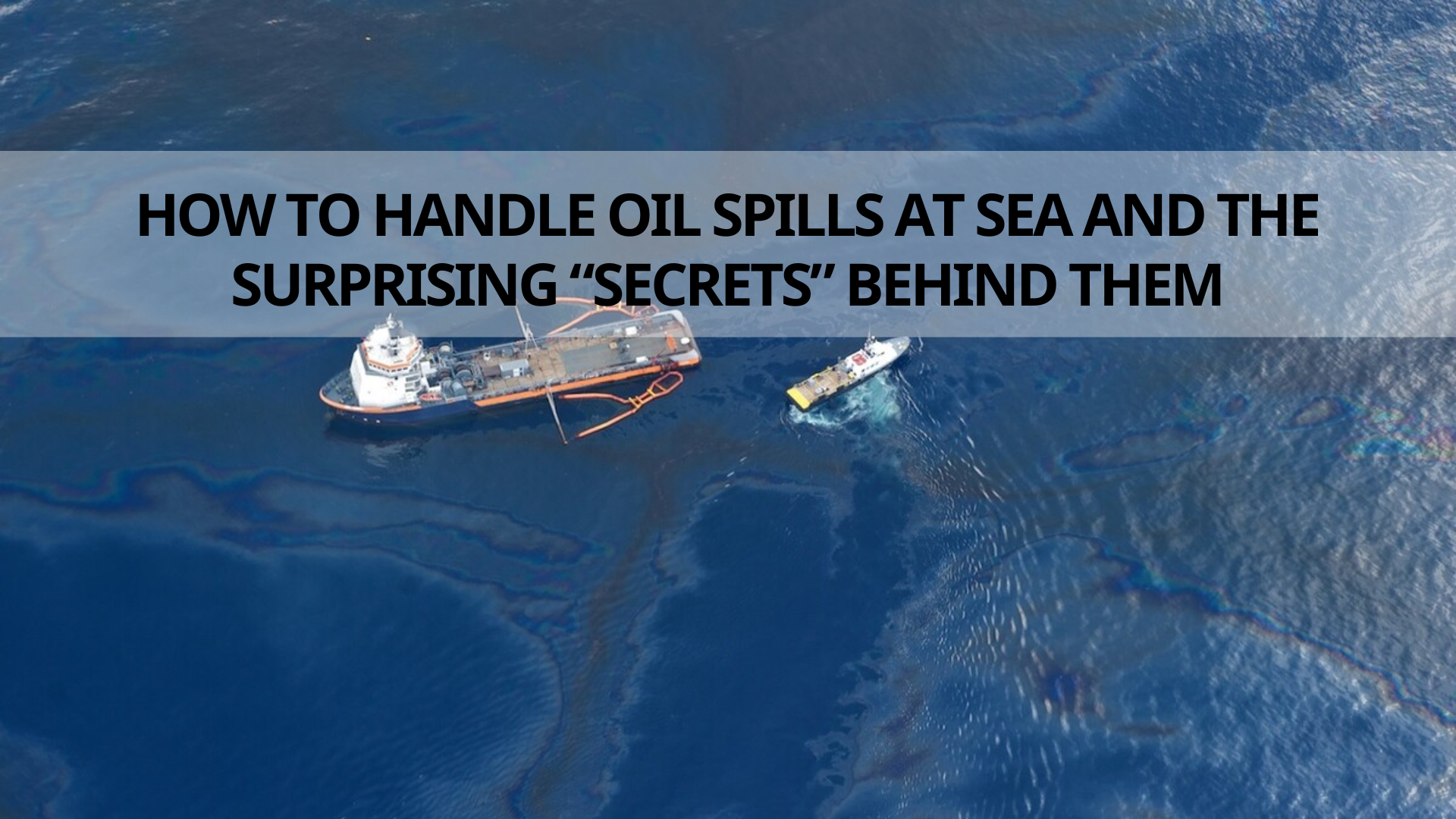BLog New
How to Handle Oil Spills at Sea and the Surprising “Secrets” Behind Them
CONTENTS
Oil Spills at Sea: An Environmental Disaster and Effective Response
Oil spills at sea are one of the most devastating environmental disasters, causing severe damage to marine ecosystems and the economy. Effectively addressing such incidents requires a coordinated use of multiple methods and resources. However, preventing spills from occurring in the first place plays the most crucial role. Let’s explore how to respond when a spill occurs and the necessary preventive measures to protect our oceans.
I. Common Causes of Oil Spills
-
Oil Tanker Incidents:
Spills often occur due to collisions or the capsizing of oil tankers, where the hull is breached, and oil is released into the sea. -
Pipeline and Equipment Failures:
Oil and gas pipelines can suffer from corrosion, fractures, or poor maintenance, leading to leaks during extraction or transportation. -
Natural Disasters:
Tsunamis and severe storms can damage oil infrastructure, including drilling rigs and pipelines, causing significant spills. -
Human Error:
Mistakes in operation, such as failure to follow proper procedures or lack of equipment maintenance, can also result in spills. Poorly trained personnel or neglected safety protocols can lead to disastrous outcomes.

II. Methods of Preventing Oil Spills
-
Regular Equipment Maintenance
Regularly inspect and maintain oil and gas extraction and transportation systems, particularly oil tankers and subsea pipelines. -
Use of Early Warning Technology
Install automatic leak detection systems to identify issues early and minimize the spread of oil into the environment. -
Training Specialized Personnel
Ensure that employees are thoroughly trained to follow safe operating procedures, minimizing human errors. -
Develop Emergency Response Plans
Oil and gas companies should create and rehearse response scenarios to react quickly when an incident occurs. -
Strict Safety Regulations Enforcement
Adhere to international maritime and oil exploration safety regulations, such as the MARPOL Convention on preventing marine pollution. -
Develop Green Extraction Technologies
Invest in environmentally friendly technologies and reduce reliance on petroleum. This not only reduces the risk of oil spills but also helps protect marine ecosystems in the long term.
III. Effective Methods of Oil Spill Response
Mechanical Methods
- Oil Booms and skimmers help prevent oil from spreading and quickly collect it.
- Oil recovery vessels are used to remove the oil floating on the water’s surface.
Chemical Methods
- Oil dispersants break the oil into smaller droplets, which helps it degrade faster.
- Coagulants help gather the oil into clumps for easier collection.

Biological Methods
- Oil-degrading bacteria are used to promote the ocean’s natural self-cleaning process.
Bioremediation helps marine organisms recover naturally after an oil spill.
In-situ Burning
- Burning the oil directly at the spill site helps reduce the amount of residual oil. However, this method can cause air pollution if not properly controlled.
IV. Little-Known Secrets About Oil Spill Response
-
High cleanup costs: Incidents like the Deepwater Horizon spill cost billions of dollars to mitigate.
-
Dispersants are not always safe: Some of these chemicals negatively affect coral reefs and sensitive marine species.
-
Oil-eating bacteria are the future solution: Alcanivorax borkumensis is being researched to break down oil quickly and safely.
-
Seabirds are the most vulnerable victims: Oil clings to their feathers, making it impossible for them to fly or stay warm.

V. Advice to Protect the Marine Environment
-
Prevention is better than cure: Invest in safety technologies and processes to minimize the risk of incidents.
-
Multilateral cooperation: Countries need to work together to protect the marine environment and share technologies for spill management.
-
Raise public awareness: Educational campaigns on ocean protection will help reduce pollution.
Handling oil spills is a major challenge, but prevention is the key to avoiding severe consequences. A combination of advanced technology, specialized training, and public awareness will help protect our oceans from similar disasters.
We hope this article has satisfied your curiosity about the fascinating world of ships. If you’re inspired by these engineering marvels and want to bring a piece of that maritime magic into your own space, don’t hesitate to visit the Gia Nhien’s showroom. With a collection of over 1,000 handcrafted wooden ship and boat models, each piece is meticulously made from natural wood by skilled artisans, capturing the elegance, detail, and heritage of real vessels.
These exquisite models are not only a celebration of fine craftsmanship but also the perfect addition to elevate your home or office decor with a touch of nautical charm.
👉 Explore the full collection of model ships here: https://woodenmodelships.net/shop/
And don’t forget to follow the Gia Nhien Wooden Ship Models Blog for more captivating stories and knowledge from the maritime world!

